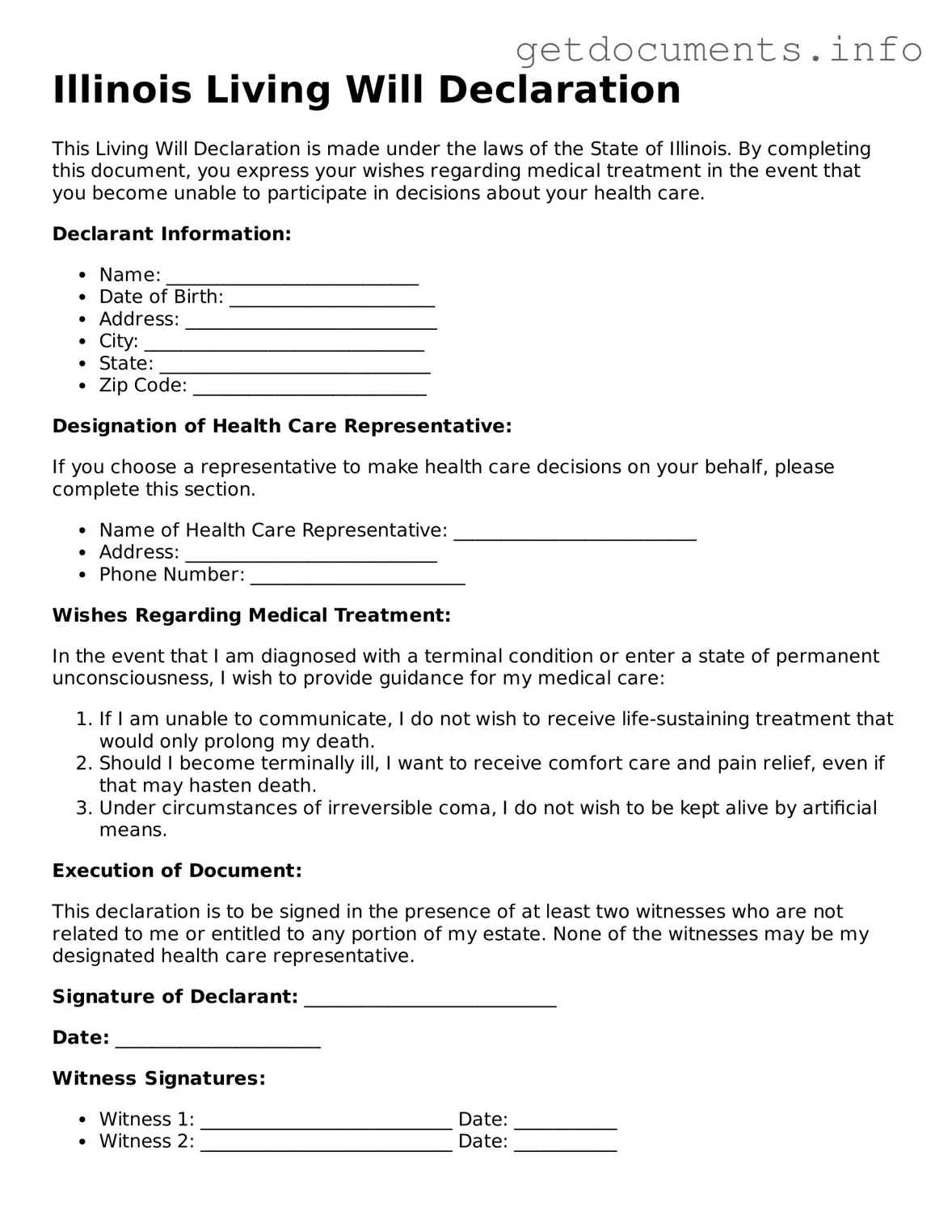Free Living Will Template for Illinois
A Living Will is a legal document that allows individuals in Illinois to express their wishes regarding medical treatment in situations where they are unable to communicate their preferences. This form is essential for ensuring that your healthcare decisions are honored, particularly in critical situations. To take control of your medical future, consider filling out the Living Will form by clicking the button below.
Access Living Will Editor

Free Living Will Template for Illinois
Access Living Will Editor
Got places to be? Complete the form fast
Fill out Living Will online and avoid printing or scanning.
Access Living Will Editor
or
⇩ PDF File
